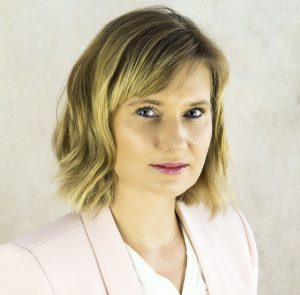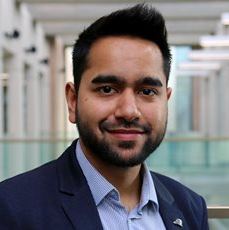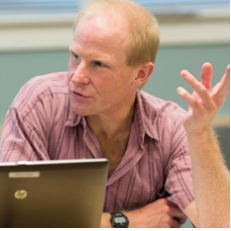Iwona Borowik
Economist, Entrepreneurship and Innovation Policy, The World Bank
Iwona is an economist with 13 years of international policy experience at the World Bank, the European Commission, the London School of Economics and Political Science, NGOs and the private sector. Iwona has been working with governments in Europe and Central Asia, in particular, on reforms and programs targeting entrepreneurship, public research commercialisation and private sector competitiveness including formulation of innovation strategies, institutional capacity building, development of executive agencies supporting private sector innovation, design and supervision of the implementation of programs for financing innovation. Iwona holds a PhD in economics from Warsaw School of Economics in Poland in collaboration with George Washington University, USA.
In her thesis, Iwona investigated innovation and learning patterns across sectors of the West Midlands region with implications for the region’s innovation policy.
View Iwona’s LinkedIn profile here.
Professor John Bryson
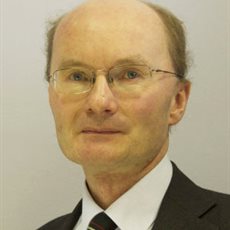 John Bryson is Professor of Enterprise and Economic Geography at the University of Birmingham. He is an internationally recognised scholar who has made significant contributions to understanding and explaining the complex ways in which economic activities are organized through space and in place. Recently, he has made major contributions to understanding the functional economic geographies of city regions by exploring the dynamics of economic activities located in large and small towns.
John Bryson is Professor of Enterprise and Economic Geography at the University of Birmingham. He is an internationally recognised scholar who has made significant contributions to understanding and explaining the complex ways in which economic activities are organized through space and in place. Recently, he has made major contributions to understanding the functional economic geographies of city regions by exploring the dynamics of economic activities located in large and small towns.
He has published seven books and over 120 journal articles, research reports, and books chapters and he is also an editor of the book series on Services, Economy and Innovation published by Edward Elgar. He is Vice-President of RESER, the leading international research association on services and expertise-driven economies, Director of the Aston Reinvestment Trust, the UK’s leading Community Development Finance Institution (CDFI), and is Independent Chair of the Worcestershire Partnership Climate Change Task Group. He has also advised the Finnish Presidency of the EU (2006).
Dr Zhaoya Gong
Lecturer in Human Geography (Big Data), School of Geography, Earth and Environmental Sciences, University of Birmingham
Dr Zhaoya Gong is a quantitative human geographer and Geographic Information Scientist. His research interests centre on two interwoven themes, namely leveraging computational and data sciences to advance geographic information science, and dynamic processes of urbanisation and complex modalities of spatial structures generated at various scales, as articulated by interactions of land use and transportation/mobility systems, with respect to the social, economic, and environmental sustainability of resulting urban settlements.
Dr Catherine Harris
Research Fellow, Centre for Trust, Peace and Social Relations, Coventry University
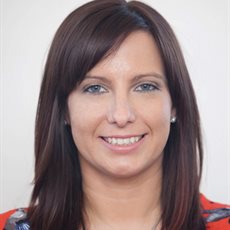 Catherine Harris is a Senior Research Fellow within the Birmingham Business School. She currently works for City-REDI. Her PhD investigated the experiences of Polish migrant entrepreneurs in the West Midlands region of the UK and is the first large-scale study of its kind. Her key areas of interest include enterprise, ethnic entrepreneurship and EU labour migration.
Catherine Harris is a Senior Research Fellow within the Birmingham Business School. She currently works for City-REDI. Her PhD investigated the experiences of Polish migrant entrepreneurs in the West Midlands region of the UK and is the first large-scale study of its kind. Her key areas of interest include enterprise, ethnic entrepreneurship and EU labour migration.
Methodologically, Catherine’s interest is in qualitative and ethnographic research. Catherine’s research has attracted interest internationally and has been disseminated in both the print and broadcast media.
Professor Geoffrey J.D. Hewings
Emeritus Director, Regional Economic Applications Laboratory, University of Illinois at Urbana- Champaign
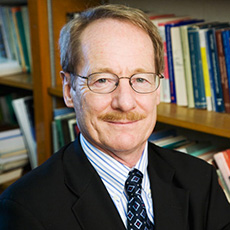 We are also pleased to work with Professor Geoffrey J.D. Hewings who is Director of REAL; the Regional Economic Applications Laboratory at the University of Illinois at Urbana- Champaign.
We are also pleased to work with Professor Geoffrey J.D. Hewings who is Director of REAL; the Regional Economic Applications Laboratory at the University of Illinois at Urbana- Champaign.
He has received Fulbright and Woodrow Wilson awards and was Executive Director of the Regional Science Association International which recognized him with an award for Service to Regional Science.
Dr Peter Lee
Reader, School of Geography, Earth and Environmental Sciences, University of Birmingham
 Peter’s research and teaching focus on the relationship between people and place based social exclusion, how policies are designed to reduce exclusion and increase competitiveness whilst reconciling the uneven trajectory and function of places. He has led on a number of housing market, regeneration and planning related research and consultancy projects for a diverse range of clients and funding bodies including the Department for Communities and Local Government, The Joseph Rowntree Foundation (UK), the Economic and Social Research Council, the Engineering and Physical Sciences Research Council, the European Commission and the Japan Society for the Promotion of Science. Peter has worked on a number of consultative projects for regional agencies, local authorities and third sector agencies across the UK including the West Midlands and North East regional assemblies, Sheffield and Leeds City Regions and Liverpool and Birmingham City Councils. He was instrumental in delivering the current West Midlands Regional Housing Strategy and Birmingham City Council’s Housing Strategy and his research informed the establishment of the £2 billion Housing Market Renewal Pathfinder Programme (2003-2011).
Peter’s research and teaching focus on the relationship between people and place based social exclusion, how policies are designed to reduce exclusion and increase competitiveness whilst reconciling the uneven trajectory and function of places. He has led on a number of housing market, regeneration and planning related research and consultancy projects for a diverse range of clients and funding bodies including the Department for Communities and Local Government, The Joseph Rowntree Foundation (UK), the Economic and Social Research Council, the Engineering and Physical Sciences Research Council, the European Commission and the Japan Society for the Promotion of Science. Peter has worked on a number of consultative projects for regional agencies, local authorities and third sector agencies across the UK including the West Midlands and North East regional assemblies, Sheffield and Leeds City Regions and Liverpool and Birmingham City Councils. He was instrumental in delivering the current West Midlands Regional Housing Strategy and Birmingham City Council’s Housing Strategy and his research informed the establishment of the £2 billion Housing Market Renewal Pathfinder Programme (2003-2011).
David Marlow
Chief Executive, Nottingham Building Society
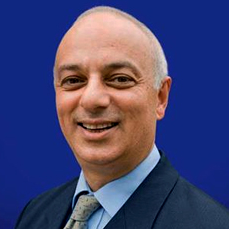 David is an experienced, visionary Chief Executive (of a metropolitan local authority, a Regional Development Agency, and now his own company), Chair/NED, and economic development professional.
David is an experienced, visionary Chief Executive (of a metropolitan local authority, a Regional Development Agency, and now his own company), Chair/NED, and economic development professional.
Since 2008, David has become one of England’s leading advisors on local economic growth. He has worked widely on devolution agreements, city and growth deals; on leadership, governance and institutional development at national, city-region and local levels; strategic economic plans and European (ESIF, H2020 etc) programmes; industrial strategy; Futures/ Foresight exercises; and university-place relations.
In the last two years, he has completed projects with national government, the two largest new Mayoral Combined Authorities, all tiers of England local government at the most senior levels, LEPs, both a Russell Group and a small specialist University on anchor institution developments, and a range of national intermediary and business bodies. He even led the UK government’s strategic recovery planning team to the British Overseas Territories in late 2017 in the aftermath of hurricanes Irma and Maria.
Allan Mayo
Innovation and Smart City Strategist
 After a recent retirement from a senior position at the Department of Business, Innovation and Skills (BIS), Allan joins the University as an Honorary Professor and brings his extensive knowledge of Whitehall, local government and the European Commission and member states.
After a recent retirement from a senior position at the Department of Business, Innovation and Skills (BIS), Allan joins the University as an Honorary Professor and brings his extensive knowledge of Whitehall, local government and the European Commission and member states.
His area of expertise aligns closely with CityREDI, including understanding cities and urban transformation, understanding urban economies and environments, and policy aspects of Smart Cities, including the development of the Government’s strategy in this area, which was published in October 2013, and BSI’s strategy for developing a suite of smart city standards. He has been a member of Birmingham City Council’s Smart City Group and was instrumental in the development of the Greenwich Smart City Strategy, which was published recently.
View Allan’s LinkedIn profile.
Dr Max Nathan

Max is Associate Professor, Applied Urban Sciences at the UCL Centre for Advanced Spatial Analysis, and is a Deputy Director of the What Works Centre for Local Economic Growth.
He is an economic geographer with a background in public policy. His research focuses on urban economic development, in particular, the economics of immigration and diversity; innovation systems and tech clusters; and public policy for cities, especially policy design and evaluation.
Max has over 15 years’ public policy experience in think tanks, consultancy and government, including at DCLG as an ESRC-DCLG Senior Policy Adviser. Max also co-founded the Centre for Cities, where he ran the research programme for the Centre’s first three years.
View Max Nathan’s full profile.
Dr Massimiliano Nuccio
 Massimiliano joined City REDI as Research Fellow in February 2019 after more than 10 years of academic experience in Italy and Germany. He is an applied economist with a background in policy and management (MA/MSc) and information economics (PhD).
Massimiliano joined City REDI as Research Fellow in February 2019 after more than 10 years of academic experience in Italy and Germany. He is an applied economist with a background in policy and management (MA/MSc) and information economics (PhD).
His research interests cover different topics on urban and regional studies, but in particular, he has specialized in the cultural and creative industries, cultural-driven economic development, cultural consumption and consumer behaviour. His social sciences perspective is sincerely multidisciplinary combining approaches and theories from economics, sociology and geography.
His latest publications have explored the impact of digital transformation and the nature of the data-driven economy. In particular, over the past few years at the University of Torino, he has contributed to establishing a research centre on big data analytics and has been managing projects to improve the knowledge and understanding of data science applied to social and economic problems.
Liam O’Farrell
Liam was a Policy and Data Analyst at City-REDI. He joined in October 2018, having previously worked as a user researcher in the Department for Work and Pensions and before that as a delivery manager at High Speed Two. He has also worked as a teacher for the British Council in Austria.
Liam has an MA in International Relations and Political Economy from the University of Birmingham and a BA in History and East European Studies from University College London. He is interested in the regional lived experience and how this is impacted by policies around social mobility, urban planning and design, infrastructure development, access to education, devolution, and responses to de-industrialisation.
Liam is currently working on the “Democratic Constitutional Design” project at the University of Iceland, which is affiliated with the Office of the Prime Minister to monitor a programme of revising the Icelandic constitution over two parliamentary terms, 2018-2025.
Dr Amir Qamar
Lecturer/Assistant Professor in Strategic Management, University of Birmingham
Amir joined City-REDI as a Research Associate in October 2016 and is currently looking to better understand the relationship between the regional economy and specific firms. This research includes investigating multiplier effects within certain supply chains, the employment footprint of MNEs, R&D initiatives, and productivity levels.
Amir has a background in Economics and International Business, but his more recent work has focused on Operations Management and Supply Chain Management as his PhD research investigated the performance and contextual trade-offs between lean and agile organisations within the automotive industry in the West Midlands. Amir has experience of teaching a wide range of modules in the domains of business strategy and operations.
Dr Laura Reynolds
Postdoctoral Research Associate at Welsh Economy Research Unit, Cardiff University
 Laura Reynolds is a Postdoctoral Research Associate within the Welsh Economy Research Unit at Cardiff University. Her role involves providing expertise on the Welsh economy and regional economic analysis in a manner that engages the academic community and Welsh businesses. Before returning to Cardiff, she worked as a Policy and Data Analyst within the City-REDI team. Laura completed an ESRC-funded PhD at Cardiff University in 2018, investigating stakeholder governance in a decentralised place branding process. In particular, her research addresses the opportunities and challenges for stakeholders when participating in the presentation of cities and regions. Her research interests include city and regional governance, stakeholder engagement, place branding, small business governance and business innovation.
Laura Reynolds is a Postdoctoral Research Associate within the Welsh Economy Research Unit at Cardiff University. Her role involves providing expertise on the Welsh economy and regional economic analysis in a manner that engages the academic community and Welsh businesses. Before returning to Cardiff, she worked as a Policy and Data Analyst within the City-REDI team. Laura completed an ESRC-funded PhD at Cardiff University in 2018, investigating stakeholder governance in a decentralised place branding process. In particular, her research addresses the opportunities and challenges for stakeholders when participating in the presentation of cities and regions. Her research interests include city and regional governance, stakeholder engagement, place branding, small business governance and business innovation.
View Laura’s LinkedIn Profile.
Will Rossiter
Associate Professor of Regional Policy and Development, Nottingham Trent University
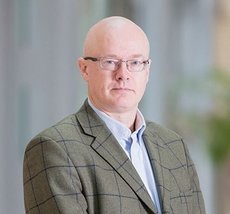 Will is an experienced research practitioner with a track record of research linked to local and regional economic development and industrial policy. As an economic development practitioner (2001-2011), Will was responsible for the design and delivery of a large scale multi-disciplinary research programme designed to inform regional and local economic development strategies and plans in the East Midlands. Since moving to NTU in 2011,
Will is an experienced research practitioner with a track record of research linked to local and regional economic development and industrial policy. As an economic development practitioner (2001-2011), Will was responsible for the design and delivery of a large scale multi-disciplinary research programme designed to inform regional and local economic development strategies and plans in the East Midlands. Since moving to NTU in 2011,
Will has undertaken a wide range of contract research, evaluation studies and academic projects/publications. Will’s academic research interests relate to local and regional economic development, industrial policy, the policy process, economic and institutional path dependence. Current projects include a comparative study of craft-based manufacturing in India and the UK, an exploration of cultural quarter initiatives in the Midlands and work on local economic governance in England.
Mark Sheldon
Research Associate, Institute of Applied Health Research, University of Birmingham
Mark is a Research Associate within the Institute of Applied Health Research (IAHR) at the University of Birmingham. His current work primarily consists of supporting the British Heart Foundation with the production of key statistics and analysis. He has previously worked as a JSNA Officer and Knowledge Exchange Facilitator at the University, a role which combined working in a local authority public health information team, with researching epidemiology and health geography in the Institute of Applied Health Research at the University of Birmingham. He has a wealth of experience in data analysis following a number of roles across various public sector organisations including the NHS, local government and the regulatory sector. Mark has a particular interest in health geography i.e. visual and spatial epidemiology, and the use of GIS.
Dr Emmanouil Tranos
Senior Lecturer in Human Geography, University of Birmingham and Fellow at the Alan Turing Institute
 Dr Emmanouil Tranos is an economic geographer focusing primarily on the spatiality of the digital economy. He is a Lecturer in Human Geography at the University of Birmingham and has published on issues related with the geography of the internet infrastructure, the economic impacts that this digital infrastructure can generate on cities and regions and the position of cities within spatial, complex networks. His research in this area led to a monograph on “The Geography of the Internet: cities, regions and Internet infrastructure”. Emmanouil has also a strong interest and expertise on the use of new sources of big data, such as data from mobile phone operators, as a means to improve our understanding of the complexities of cities and urban systems. Currently, he is doing research on (i) the role of online social media as a medium for knowledge transfer and (ii) the evolution of the digital economy in the UK by utilising the wealth of archived web data.
Dr Emmanouil Tranos is an economic geographer focusing primarily on the spatiality of the digital economy. He is a Lecturer in Human Geography at the University of Birmingham and has published on issues related with the geography of the internet infrastructure, the economic impacts that this digital infrastructure can generate on cities and regions and the position of cities within spatial, complex networks. His research in this area led to a monograph on “The Geography of the Internet: cities, regions and Internet infrastructure”. Emmanouil has also a strong interest and expertise on the use of new sources of big data, such as data from mobile phone operators, as a means to improve our understanding of the complexities of cities and urban systems. Currently, he is doing research on (i) the role of online social media as a medium for knowledge transfer and (ii) the evolution of the digital economy in the UK by utilising the wealth of archived web data.
View Emmanouil’s full profile.
Professor Stephan Weiler
Professor of Economics at Colorado State University and Director of the Regional Economic Development Institute (REDI@CSU)
Stephan Weiler is the Director of REDI@CSU, a research institute based at Colorado State University which aims to understand, analyse, and inform economic development strategies, particularly in struggling regions in both rural and urban areas, especially in Colorado. He holds the William E. Morgan Endowed Chair as Professor of Economics at Colorado State University. Stephan’s research, teaching and mentoring have spanned a variety of development and labour market issues in Africa, Appalachia, Europe, and the American West. His current work focuses on regional economic growth and development, particularly in rural and inner-city areas, combining theoretical, empirical, and policy analyses on topics such as information, innovation, industrial restructuring, land use, public/private partnerships, immigration, entrepreneurship, and the environment.
City-REDI is working in partnership with REDI@CSU to provide fresh, timely, and cutting-edge information to enhance economic growth and development prospects for regions across the globe.

